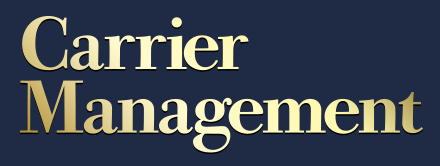The stories are legion…when a company has hired a consulting firm, and the experience or results didn’t meet their expectations. This experience then leads to a very pessimistic view towards all consulting firms.
But the reality is that hiring a risk and strategy consultant can be the catalyst that propels a company to success, the company’s worst nightmare, or anything in between. It really depends.
The nightmare scenario often results when two things occur in tandem: 1. the company/client is unclear on why it needs a consultant and what it wants to accomplish, and 2. the consulting firm is not transparent or attempts to cut/paste a solution that’s been used elsewhere. It’s scenarios like this leave a bad taste about consultants that can be hard for both parties to overcome.
However, like the sunrise each day or the income tax filing deadline each year, it’s inevitable that a consultant will need to be brought in, even for the most seasoned practitioners or executives.
There can be a limitless number of purposes for hiring a risk and strategy consultant ranging from creating a new style of risk reports to establishing a formal ERM program or developing a strategic plan for the next year. The list is endless.
The purpose of today’s article isn’t to try and list all the possibilities, but rather, to showcase the general circumstances or situations where hiring a risk and strategy consultant makes sense. These include the following:
-
You don’t have the expertise or capability in-house.
It’s impossible to know how to do everything, especially if you’re in a leadership position that requires many different hats. For example, a manager or director with a compliance background now has risk under their umbrella or responsibility. Do you think this individual will be able to facilitate a risk workshop when they have spent more time focusing on compliance documentation and speaking with regulators? (Note: this is a statement simplifying compliance work for the purposes of brevity.)
In cases like this, this individual may be planning to hire someone with a risk background based on the workload, but in the meantime, hiring a risk and strategy consultant can help bridge the gap until someone more permanent can be recruited to fill the particular role.
-
You don’t have the capacity in-house.
Let’s face it – everyone is really busy, and you just got asked to take on a new assignment/responsibility/project. Who is supposed to do the work? The current team has the expertise, but one critical ingredient that’s missing is – you guessed it, time. It is time to bring in a consultant to pick up the slack, especially when the executive(s) or board want the work done yesterday or within a very short timeline.
Like number one, it can be tempting to think a consultant can be a permanent part of your team.
It is good to have a consulting firm with the resources to help in a variety of situations, although you want them to be experts in the need you have. Take into consideration that you don’t want to become dependent upon this individual to actually perform day-to-day work as part of the team on a long-term basis because it can create its own challenges, such as becoming too reliant upon that person. As I explain in a previous article on finding the right talent for understanding uncertainty, a consultant can be brought in to address immediate need(s) while the company works to build up its own capabilities or figure out a long-term solution to the resource capacity constraints.
-
An outside perspective is needed.
One of the main benefits of hiring a risk and strategy consultant is that they also bring their experiences from other companies with them. They know what works and what doesn’t in certain situations, so bringing that perspective into your company can be extremely helpful to ensure things are on the right track.
Sometimes executive leadership would like the outside perspective of a consultant for a variety of reasons. Although they will often concur with internal staff recommendations, the consultant’s voice is given more weight. As I explain in a previous article comparing internal risk professionals and external consultants, an internal practitioner is someone familiar who is considered to be “mired in the day-to-day” of the company.
And while the internal practitioner’s knowledge of the company is unmatched, an external consultant with deep expertise on a certain topic will be helpful in certain situations. While it can be discouraging for the internal practitioner, the important thing to remember is do not take it personally.
-
You want to tap into the consultant’s network.
The final situation where hiring a risk and strategy consultant makes sense is their professional network. Not only does a consultant bring their experience with other companies to the table, they (should) also have an extensive network of contacts they can reach out to. Even if the consultant doesn’t have answers to all your questions, they can draw on their network to find the answers.
And remember, a solution doesn’t have to come from within your industry. One mistake companies often make is to look for consultants with industry experience rather than expertise in a particular field. ERM and strategy are bigger than any one industry. A little industry experience can go a long way in certain cases, and having someone from the “outside” can provide a truly fresh perspective needed to address a tough challenge.
As author and coach David A. Fields explains in his book The Executive’s Guide to Consultants: How to Find, Hire, and Get Great Results from Outside Experts:
If you do not have the capacity or capability to take on a project in-house and you determine you shouldn’t find a way to bring it inside, then you partner with an outside expert. These are the perfect situations for bringing in consultants or other outside resources.
This previous article on ensuring consulting engagements deliver value is a great primer, but David’s book provides a comprehensive resource for helping companies determine the qualities of a good consultant, when one is needed and how to go about finding the right one.
What other situations would you say hiring a risk and strategy consultant is warranted?
To share your thoughts, please don’t hesitate to leave a comment below.
If you don’t have the required expertise or capacity in-house and need to determine whether hiring a risk and strategy consultant is the best approach, reach out to me to discuss your specific need(s) and possible solutions. If I’m not the best fit, I can leverage my extensive network to help you find the right one.
Featured image courtesy of Amy Hirschi via Unsplash.com







